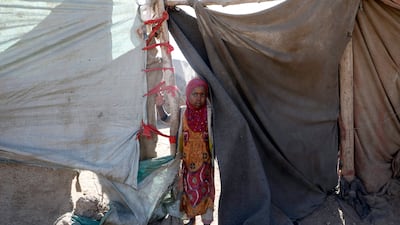Britain has squandered its hard-earned reputation as a “development superpower”, a minister has admitted as he said it was his task to make the current cutbacks work better to ensure the best is preserved for better days.
Andrew Mitchell said under previous prime ministers the UK had been held in high esteem internationally due to its dedication to overseas projects. But he said nations around the world now “bemoan” the Conservative government’s recent decisions.
He suggested the widespread perception was a far cry from the widely-held view of the UK during the years of Tony Blair and then David Cameron in No 10 Downing Street.
Speaking to the international development committee in the UK Parliament on Tuesday, the newly appointed development minister elaborated on his recent criticism of the government’s decision to merge two departments. Mr Mitchell said there was “difficulty in the structure” of the new system, which is made up of the Department for International Development and the Foreign and Commonwealth Office, which previously operated separately.
He said some aspects of the merger to form the Foreign, Commonwealth and Development Office (FCDO) were "sub-optimal”.
“You will appreciate ... that I have said very publicly what I think about the merger of the two departments,” he said.
“But collective responsibility is not retrospective and the merger is a fact, it’s a settled policy of the government. The question is 'can we make it work better' and I will give the committee just this one set of statistics.
“When Tony Blair and Gordon Brown were in government, we spent 0.51 per cent [of national income] on international development and we were without question a development superpower," Mr Mitchell told MPs.
“I would argue that in 2012 when David Cameron was our prime minister, we were also spending 0.51 per cent and in my view, we were without question a development superpower.
“Today, we are actually spending 0.55 per cent and, you know, let’s not beat about the bush, we are not a development superpower at the moment and that is something that is bemoaned around the world by our many friends and people who look to Britain for leadership on international development.”
In his autumn budget announced last month, Jeremy Hunt, the Chancellor of the Exchequer, said the UK would not return to spending 0.7 per cent of GDP until the economic conditions allowed, and pegged it at 0.5 per cent.
But Britain is tipped to smash its spending cap this year due to so much of the budget being eaten up by support packages for asylum seekers.
The amount was slashed under Boris Johnson from 0.7 per cent to 0.5 per cent during the Covid-19 pandemic.
Mr Mitchell said work needed to be done to rebuild the UK’s reputation as a development superpower.
“If you’re going to recruit, motivate and retain [staff] and build back this great British expertise and leadership … then we have to, in my opinion, make some structural changes in the FCDO, which allow within that structure there to be a hub of excellence that deals with these global public goods,” he said. “And if Britain is seen to do that, other countries will engage with us in a way they don’t at the moment but did in the past and that will start the restoration.”
Myles Wickstead, a professor in international relations at King’s College London who previously served as ambassador to Ethiopia, Djibouti and the African Union, last month told The National that the UK’s soft power was being eroded due to a foreign aid lower budget.
“There are still 30 or so very poor countries in the world which require aid,” he said. “In all those places, the UK’s reputation is high, it is seen in a leadership role. I think that reputation has suffered significantly.
“The UK is going to have to move quickly to repair it.”


